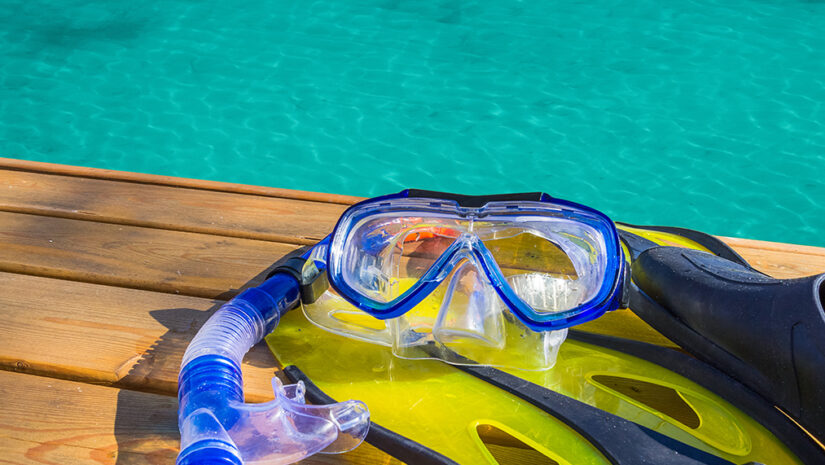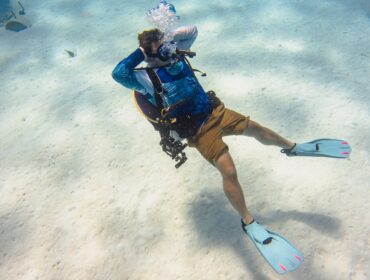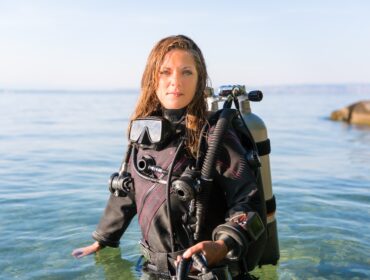The purchase of quality SCUBA gear is an investment in one of the most exciting hobbies in the world. SCUBA gear is complex, sometimes delicate, and, let’s face it, expensive. Many small working parts must remain clean and protected, from the essential mask, fins, and straps to the more complicated and intricate BCDs and dive computers. SCUBA gear care instructions are usually included with each piece of equipment you purchase, but there are a few tips for care and damage prevention that are universal for all SCUBA gear.
The easiest way to keep your SCUBA gear in top shape is to prevent damage. Use clips and attachments to prevent your hoses and other equipment from dragging along the ocean floor, catching up in coral, or snagging. Not only will your equipment avoid some nasty damage, but you will also be doing your part to protect marine life.
A freshwater rinse is an essential part of SCUBA gear care. Rinse the inside and outside of your BCD with fresh water and store it to dry partially inflated. Rinse all attachments, fins, mask, and wetsuit after every dive. While rinsing your regulator, ensure no water enters the first stage. After adequately rinsing everything, put the wet equipment in an area with good ventilation but away from direct sunlight to dry it. Ensure all water is drained from your BCD, and hang your wetsuit to dry.
Moving parts of SCUBA gear, such as buttons, control levers, and knobs, can get crusty with salt and sand. When rinsing these parts after each dive, be sure to work them back and forth gently to release any particles that may be stuck. Also, check grooves and folds in the cloth parts of your equipment to be sure that salt and sand have been properly washed out.
Finally, all rubber parts, particularly those that get a lot of sun exposure, must be frequently inspected. Mask straps, regulator mouthpieces, and other rubber attachments and covers are usually the first to need replacing. Frequent exposure to sunlight and teeth wear these small but vitally important pieces down quickly. When rinsing your equipment, inspect all of these parts, as it is better to find that something needs replacing when you are on land.





